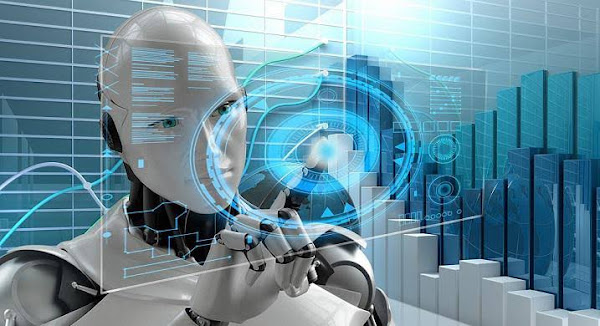- Get link
- X
- Other Apps
- Get link
- X
- Other Apps
Artificial intelligence (AI) is a branch of computer science that deals with the creation of intelligent agents, which are systems that can reason, learn, and act autonomously. AI research has been highly successful in developing effective techniques for solving a wide range of problems, from game playing to medical diagnosis.
There are many different approaches to AI, but they all share the common goal of creating systems that can perform tasks that are typically associated with human intelligence. Some of the most common AI techniques include machine learning, natural language processing, and computer vision.
Machine learning is a type of AI that allows systems to learn from data without being explicitly programmed. This is done by training the system on a large dataset of examples, and then allowing the system to apply what it has learned to new data.
Natural language processing is a type of AI that allows systems to understand and process human language. This is a complex task, as human language is full of ambiguity and nuance. However, natural language processing systems have become increasingly sophisticated in recent years, and they are now used in a wide variety of applications, such as speech recognition and machine translation.
Computer vision is a type of AI that allows systems to see and understand the world around them. This is done by using cameras to capture images, and then using algorithms to analyze those images and extract information. Computer vision systems are now used in a wide variety of applications, such as self-driving cars and facial recognition.
AI is a rapidly growing field, and it is having a major impact on our lives. AI systems are now used in a wide variety of applications, from healthcare to transportation to customer service. As AI continues to develop, it is likely to have an even greater impact on our lives in the years to come.
Here are some of the benefits of AI:
- AI can help us to solve complex problems that would be difficult or impossible for humans to solve on their own.
- AI can help us to automate tasks that are currently performed by humans, which can free up our time for other activities.
- AI can help us to make better decisions by providing us with more information and insights.
- AI can help us to improve our lives in a variety of ways, such as by providing us with better healthcare, transportation, and customer service.
However, there are also some potential risks associated with AI:
- AI could be used to create autonomous weapons that could kill without human intervention.
- AI could be used to create systems that are biased or discriminatory.
- AI could be used to create systems that are hacked or manipulated.
It is important to be aware of the potential risks of AI, and to take steps to mitigate those risks. However, the potential benefits of AI are significant, and it is important to continue to develop and use AI in a responsible way.
Sources
- Get link
- X
- Other Apps

Comments
Post a Comment